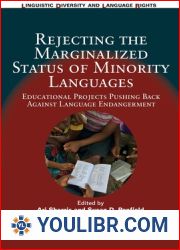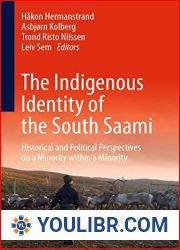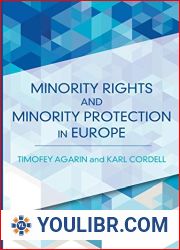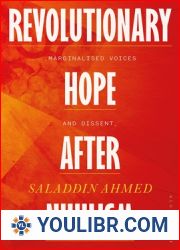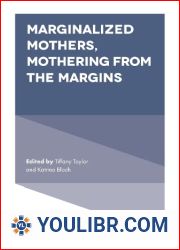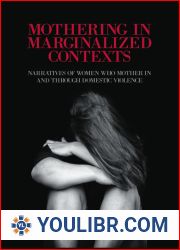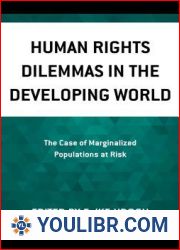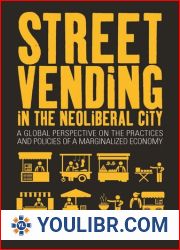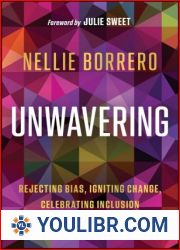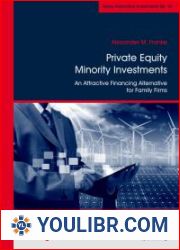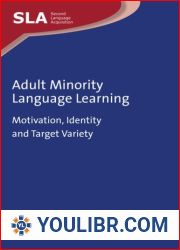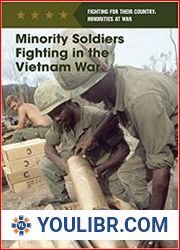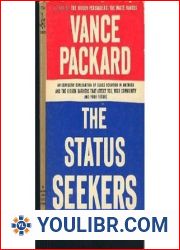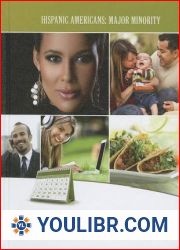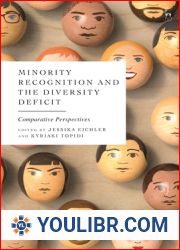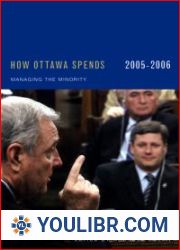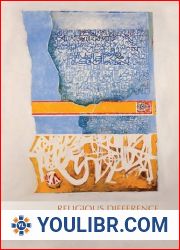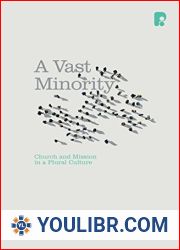
BOOKS - Rejecting the Marginalized Status of Minority Languages: Educational Projects...

Rejecting the Marginalized Status of Minority Languages: Educational Projects Pushing Back Against Language Endangerment (Linguistic Diversity and Language Rights, 18) (Volume 18)
Author: Ari Sherris
Year: November 20, 2019
Format: PDF
File size: PDF 2.2 MB
Language: English
Year: November 20, 2019
Format: PDF
File size: PDF 2.2 MB
Language: English
This book explores Indigenous, tribal and minority (ITM) language education in oral and or written communication and in the use of new technologies and online resources for pedagogical purposes in diverse geopolitical contexts. It demonstrates that ITM language education transpires in both formal and informal spaces for children or adults and that sometimes these spaces are online, where they become de-territorialized discourses of teaching and learning.' The volume brings together examples of ITM language education that are challenging the forces that flatten 'languacultures' into artefacts of history. It also examines the economic and material realities of the people who live in and through their 'languacultures', or who aspire to do as much. The book will be useful for educators and all those interested in Indigenous and minority language issues, as well as for a wide range of undergraduate, graduate and research contexts where topics of language education and minority rights are the focus.
descargar archivo pdf download pdf file Scarica il file pdf 下载 pdf 文件 PDF-Datei herunterladen pdf dosyasını indir download pdf file скачать файл PDF pdf 파일 다운로드 pobierz plik pdf להוריד קובץ PDF descarregar ficheiro pdf تنزيل ملف pdf PDFファイルをダウンロード télécharger le fichier pdf
Este livro aborda a educação linguística dos povos indígenas, tribos e minorias (ITM) em comunicações orais e/ou escritas, bem como o uso de novas tecnologias e recursos on-line para fins pedagógicos em vários contextos geopolíticos. Isso demonstra que a educação linguística do ITM acontece tanto no espaço formal como no espaço informal para crianças ou adultos, e que, às vezes, esses espaços estão online, onde eles se tornam discursivos de aprendizagem e aprendizagem territorializados. O volume reúne exemplos da formação linguística ITM que desafiam as forças que transformam as culturas linguísticas em artefatos da história. Ele também aborda as realidades econômicas e materiais de pessoas que vivem em e através de suas «culturas linguísticas», ou que procuram fazer o mesmo. O livro será útil para os professores e todos aqueles que se interessam pelas línguas indígenas e minoritárias, bem como por uma ampla gama de contextos de licenciatura, mestrado e pesquisa, que se concentram na educação linguística e nos direitos das minorias.
Ce livre traite de l'éducation linguistique autochtone, tribale et minoritaire (IMT) dans la communication orale et/ou écrite, ainsi que dans l'utilisation des nouvelles technologies et des ressources en ligne à des fins pédagogiques dans différents contextes géopolitiques. Cela démontre que l'éducation linguistique de l'IMT se déroule à la fois dans un espace formel et informel pour les enfants ou les adultes, et que ces espaces sont parfois en ligne, où ils deviennent des discours d'apprentissage et d'apprentissage territorialisés. "Tom regroupe des exemples d'éducation linguistique de l'IMT qui défient les forces qui transforment les cultures linguistiques en artefacts de l'histoire. Il examine également les réalités économiques et matérielles des personnes qui vivent dans et à travers leurs « cultures linguistiques », ou qui cherchent à faire de même. Le livre sera utile aux enseignants et à tous ceux qui s'intéressent aux questions relatives aux langues autochtones et minoritaires, ainsi qu'à un large éventail de contextes de baccalauréat, de maîtrise et de recherche axés sur l'éducation linguistique et les droits des minorités.
Dieses Buch untersucht die Sprachbildung indigener Völker, Stämme und Minderheiten (ITM) in der mündlichen und/oder schriftlichen Kommunikation sowie in der Nutzung neuer Technologien und Online-Ressourcen für pädagogische Zwecke in verschiedenen geopolitischen Kontexten. Dies zeigt, dass ITM-Sprachbildung sowohl im formalen als auch im informellen Raum für Kinder oder Erwachsene stattfindet und dass diese Räume manchmal online sind, wo sie zu de-territorialisierten Lehr- und Lerndiskursen werden. „Der Band vereint Beispiele von ITM-Sprachbildung, die Kräfte herausfordern, die Sprachkulturen“ in Artefakte der Geschichte verwandeln. Es befasst sich auch mit den wirtschaftlichen und materiellen Realitäten von Menschen, die in und durch ihre „Sprachkulturen“ leben oder dasselbe tun wollen. Das Buch ist nützlich für Pädagogen und alle, die sich für Fragen der indigenen Sprachen und Minderheiten interessieren, sowie für ein breites Spektrum von Bachelor-, Master- und Forschungskontexten, in denen der Schwerpunkt auf den Themen Sprachunterricht und Minderheitenrechte liegt.
This book explores Indigenous, tribal and minority (ITM) language education in oral and or written communication and in the use of new technologies and online resources for pedagogical purposes in diverse geopolitical contexts. It demonstrates that ITM language education transpires in both formal and informal spaces for children or adults and that sometimes these spaces are online, where they become de-territorialized discourses of teaching and learning.' The volume brings together examples of ITM language education that are challenging the forces that flatten 'languacultures' into artefacts of history. It also examines the economic and material realities of the people who live in and through their 'languacultures', or who aspire to do as much. The book will be useful for educators and all those interested in Indigenous and minority language issues, as well as for a wide range of undergraduate, graduate and research contexts where topics of language education and minority rights are the focus.
Este libro aborda la educación lingüística de pueblos indígenas, tribus y minorías (ITM) en comunicación oral y/o escrita, así como el uso de nuevas tecnologías y recursos en línea con fines pedagógicos en diferentes contextos geopolíticos. Esto demuestra que la educación lingüística del ITM tiene lugar tanto en el espacio formal como en el informal para niños o adultos, y que a veces estos espacios están en línea, donde se convierten en discursos de aprendizaje y aprendizaje de carácter de territorio. 'Tom reúne ejemplos de educación lingüística del ITM que desafían las fuerzas que transforman las culturas lingüísticas' en artefactos de la historia. También aborda las realidades económicas y materiales de las personas que viven en y a través de sus 'culturas lingüísticas', o que buscan hacer lo mismo. El libro será útil para los profesores y todos aquellos interesados en las lenguas indígenas y minoritarias, así como para una amplia gama de contextos de licenciatura, maestría e investigación, donde se centra en los temas de la educación lingüística y los derechos de las minorías.
В этой книге рассматривается языковое образование коренных народов, племен и меньшинств (ITM) в устном и/или письменном общении, а также в использовании новых технологий и онлайн-ресурсов в педагогических целях в различных геополитических контекстах. Это демонстрирует, что языковое образование ITM происходит как в формальном, так и в неформальном пространстве для детей или взрослых, и что иногда эти пространства находятся в режиме онлайн, где они становятся де-территориализированными дискурсами преподавания и обучения. Том объединяет примеры языкового образования ITM, которые бросают вызов силам, которые превращают языковые культуры в артефакты истории. В нем также рассматриваются экономические и материальные реалии людей, которые живут в своих языковых культурах и через них, или которые стремятся сделать то же самое. Книга будет полезна для преподавателей и всех тех, кто интересуется вопросами языков коренных народов и меньшинств, а также для широкого спектра контекстов бакалавриата, магистратуры и исследований, где основное внимание уделяется темам языкового образования и прав меньшинств.
Questo libro affronta l'educazione linguistica dei popoli indigeni, delle tribù e delle minoranze (ITM) nella comunicazione orale e/o scritta e nell'uso di nuove tecnologie e risorse online per scopi pedagogici in diversi contesti geopolitici. Ciò dimostra che l'istruzione linguistica dell'ITM avviene sia in uno spazio formale che non formale per bambini o adulti, e che a volte questi spazi sono online, dove diventano discorsi di apprendimento e di apprendimento. Il volume riunisce esempi di formazione linguistica dell'ITM che sfidano i poteri che trasformano le culture linguistiche in artefici della storia. Si tratta anche delle realtà economiche e materiali di persone che vivono in e attraverso le loro «culture linguistiche», o che cercano di fare lo stesso. Il libro sarà utile per i docenti e per tutti coloro che si occupano delle lingue indigene e delle minoranze e per una vasta gamma di contesti di laurea, di laurea magistrale e di ricerca che si concentrano sui temi dell'educazione linguistica e dei diritti delle minoranze.
Este livro aborda a educação linguística dos povos indígenas, tribos e minorias (ITM) em comunicações orais e/ou escritas, bem como o uso de novas tecnologias e recursos on-line para fins pedagógicos em vários contextos geopolíticos. Isso demonstra que a educação linguística do ITM acontece tanto no espaço formal como no espaço informal para crianças ou adultos, e que, às vezes, esses espaços estão online, onde eles se tornam discursivos de aprendizagem e aprendizagem territorializados. O volume reúne exemplos da formação linguística ITM que desafiam as forças que transformam as culturas linguísticas em artefatos da história. Ele também aborda as realidades econômicas e materiais de pessoas que vivem em e através de suas «culturas linguísticas», ou que procuram fazer o mesmo. O livro será útil para os professores e todos aqueles que se interessam pelas línguas indígenas e minoritárias, bem como por uma ampla gama de contextos de licenciatura, mestrado e pesquisa, que se concentram na educação linguística e nos direitos das minorias.
Ce livre traite de l'éducation linguistique autochtone, tribale et minoritaire (IMT) dans la communication orale et/ou écrite, ainsi que dans l'utilisation des nouvelles technologies et des ressources en ligne à des fins pédagogiques dans différents contextes géopolitiques. Cela démontre que l'éducation linguistique de l'IMT se déroule à la fois dans un espace formel et informel pour les enfants ou les adultes, et que ces espaces sont parfois en ligne, où ils deviennent des discours d'apprentissage et d'apprentissage territorialisés. "Tom regroupe des exemples d'éducation linguistique de l'IMT qui défient les forces qui transforment les cultures linguistiques en artefacts de l'histoire. Il examine également les réalités économiques et matérielles des personnes qui vivent dans et à travers leurs « cultures linguistiques », ou qui cherchent à faire de même. Le livre sera utile aux enseignants et à tous ceux qui s'intéressent aux questions relatives aux langues autochtones et minoritaires, ainsi qu'à un large éventail de contextes de baccalauréat, de maîtrise et de recherche axés sur l'éducation linguistique et les droits des minorités.
Dieses Buch untersucht die Sprachbildung indigener Völker, Stämme und Minderheiten (ITM) in der mündlichen und/oder schriftlichen Kommunikation sowie in der Nutzung neuer Technologien und Online-Ressourcen für pädagogische Zwecke in verschiedenen geopolitischen Kontexten. Dies zeigt, dass ITM-Sprachbildung sowohl im formalen als auch im informellen Raum für Kinder oder Erwachsene stattfindet und dass diese Räume manchmal online sind, wo sie zu de-territorialisierten Lehr- und Lerndiskursen werden. „Der Band vereint Beispiele von ITM-Sprachbildung, die Kräfte herausfordern, die Sprachkulturen“ in Artefakte der Geschichte verwandeln. Es befasst sich auch mit den wirtschaftlichen und materiellen Realitäten von Menschen, die in und durch ihre „Sprachkulturen“ leben oder dasselbe tun wollen. Das Buch ist nützlich für Pädagogen und alle, die sich für Fragen der indigenen Sprachen und Minderheiten interessieren, sowie für ein breites Spektrum von Bachelor-, Master- und Forschungskontexten, in denen der Schwerpunkt auf den Themen Sprachunterricht und Minderheitenrechte liegt.
This book explores Indigenous, tribal and minority (ITM) language education in oral and or written communication and in the use of new technologies and online resources for pedagogical purposes in diverse geopolitical contexts. It demonstrates that ITM language education transpires in both formal and informal spaces for children or adults and that sometimes these spaces are online, where they become de-territorialized discourses of teaching and learning.' The volume brings together examples of ITM language education that are challenging the forces that flatten 'languacultures' into artefacts of history. It also examines the economic and material realities of the people who live in and through their 'languacultures', or who aspire to do as much. The book will be useful for educators and all those interested in Indigenous and minority language issues, as well as for a wide range of undergraduate, graduate and research contexts where topics of language education and minority rights are the focus.
Este libro aborda la educación lingüística de pueblos indígenas, tribus y minorías (ITM) en comunicación oral y/o escrita, así como el uso de nuevas tecnologías y recursos en línea con fines pedagógicos en diferentes contextos geopolíticos. Esto demuestra que la educación lingüística del ITM tiene lugar tanto en el espacio formal como en el informal para niños o adultos, y que a veces estos espacios están en línea, donde se convierten en discursos de aprendizaje y aprendizaje de carácter de territorio. 'Tom reúne ejemplos de educación lingüística del ITM que desafían las fuerzas que transforman las culturas lingüísticas' en artefactos de la historia. También aborda las realidades económicas y materiales de las personas que viven en y a través de sus 'culturas lingüísticas', o que buscan hacer lo mismo. El libro será útil para los profesores y todos aquellos interesados en las lenguas indígenas y minoritarias, así como para una amplia gama de contextos de licenciatura, maestría e investigación, donde se centra en los temas de la educación lingüística y los derechos de las minorías.
В этой книге рассматривается языковое образование коренных народов, племен и меньшинств (ITM) в устном и/или письменном общении, а также в использовании новых технологий и онлайн-ресурсов в педагогических целях в различных геополитических контекстах. Это демонстрирует, что языковое образование ITM происходит как в формальном, так и в неформальном пространстве для детей или взрослых, и что иногда эти пространства находятся в режиме онлайн, где они становятся де-территориализированными дискурсами преподавания и обучения. Том объединяет примеры языкового образования ITM, которые бросают вызов силам, которые превращают языковые культуры в артефакты истории. В нем также рассматриваются экономические и материальные реалии людей, которые живут в своих языковых культурах и через них, или которые стремятся сделать то же самое. Книга будет полезна для преподавателей и всех тех, кто интересуется вопросами языков коренных народов и меньшинств, а также для широкого спектра контекстов бакалавриата, магистратуры и исследований, где основное внимание уделяется темам языкового образования и прав меньшинств.
Questo libro affronta l'educazione linguistica dei popoli indigeni, delle tribù e delle minoranze (ITM) nella comunicazione orale e/o scritta e nell'uso di nuove tecnologie e risorse online per scopi pedagogici in diversi contesti geopolitici. Ciò dimostra che l'istruzione linguistica dell'ITM avviene sia in uno spazio formale che non formale per bambini o adulti, e che a volte questi spazi sono online, dove diventano discorsi di apprendimento e di apprendimento. Il volume riunisce esempi di formazione linguistica dell'ITM che sfidano i poteri che trasformano le culture linguistiche in artefici della storia. Si tratta anche delle realtà economiche e materiali di persone che vivono in e attraverso le loro «culture linguistiche», o che cercano di fare lo stesso. Il libro sarà utile per i docenti e per tutti coloro che si occupano delle lingue indigene e delle minoranze e per una vasta gamma di contesti di laurea, di laurea magistrale e di ricerca che si concentrano sui temi dell'educazione linguistica e dei diritti delle minoranze.







